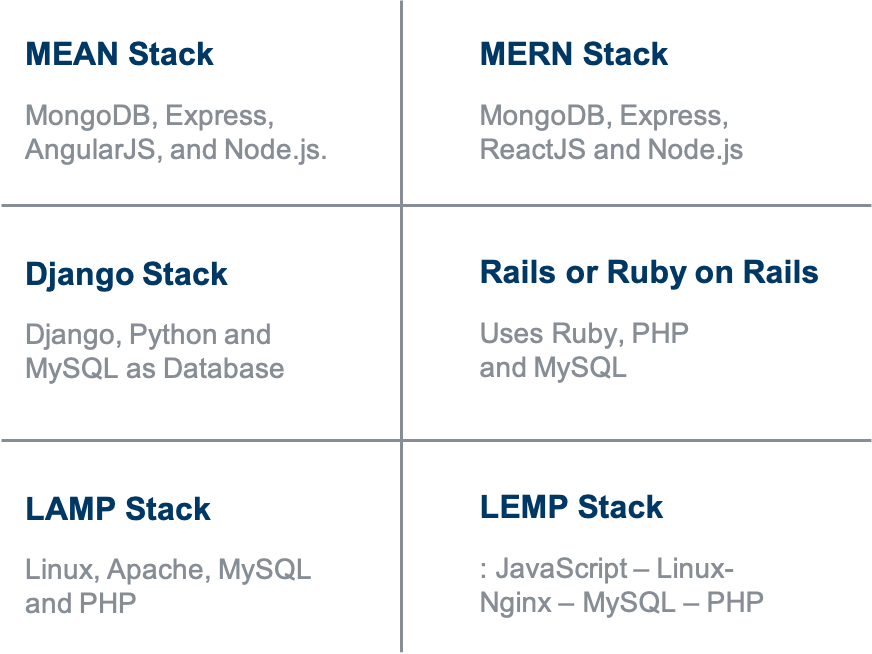Full-stack engineers are multi-skilled developers who address and discuss both aspects of the software development process. Their knowledge and understanding of languages, frameworks, and architecture are profoundly more expansive than other focussed developers. Whether it is proficiency in the front-end and back-end, database servers, Version Control System, or network and hosting environments, full-stack software engineers are team players with an end-to-end understanding of software development.
Full-stack engineers are often called unicorns due to their high demand. They are also sometimes referred to as T-shaped persons because of their overreaching skills set. Undoubtedly, full-stack engineers are masters of the tech world, but they aren’t predominantly tasked with building the software themselves. Sometimes, they oversee everything and guide the team, and often their services are restricted to only consultations. At times, they are a part of the team to monitor and ensure that the company mandate is adequately addressed during the production process.
What Is the Role of a Full-Stack Engineer?
As we mentioned earlier, the role of an ideal full-stack web developer varies, depending on organizational needs. There is no preferred paradigm. However, if we analyze from a software development team’s perspective, a full-stack software engineer’s role is relatively significant and holistic. They are the one-point contact that streamlines processes and fast-track development, right from ideation to deployment and beyond. A full-stack developer is involved in designing and developing the user interface using HTML, CSS, JavaScript, and frameworks and third-party libraries, such as AngularJS, jQuery, React to build an interactive front-end. They apply APIs and coding for various platforms. They work with the data team to make more intuitive products for usage. Maintaining quality and ensuring the responsiveness of applications is also a part of their profile. Optimizing existing systems by testing and fixing bugs is equally an essential part of a full-stack role. A full-stack software engineer develops the overall architecture considering every aspect of the product development cycle. They ensure scalable software solutions by using a range of technologies and languages to create various layers of the infrastructure.









 Behavioral Competencies
Behavioral Competencies Cognitive Competencies
Cognitive Competencies Coding Competencies
Coding Competencies Domain Competencies
Domain Competencies



































Would you like to comment?